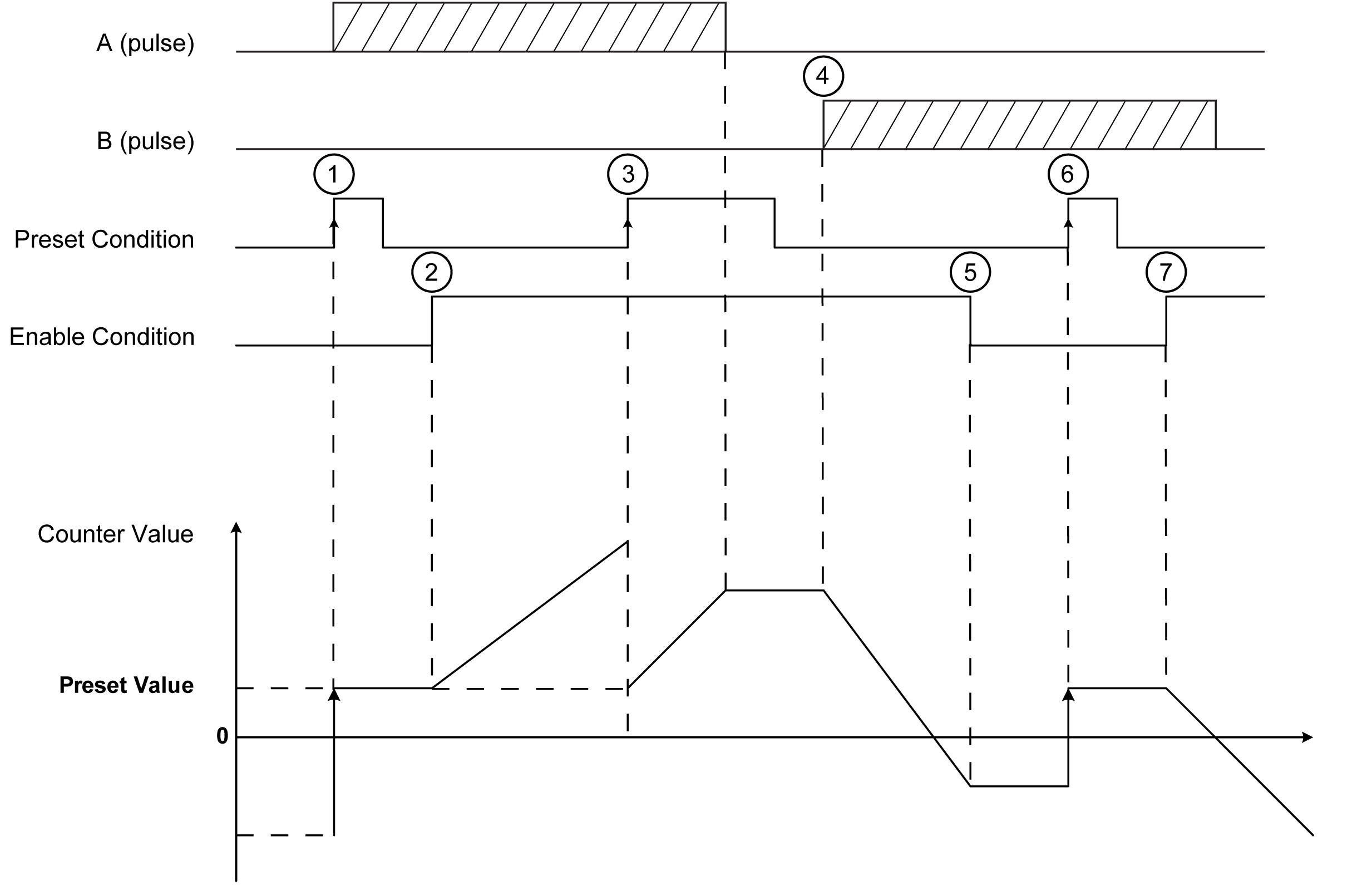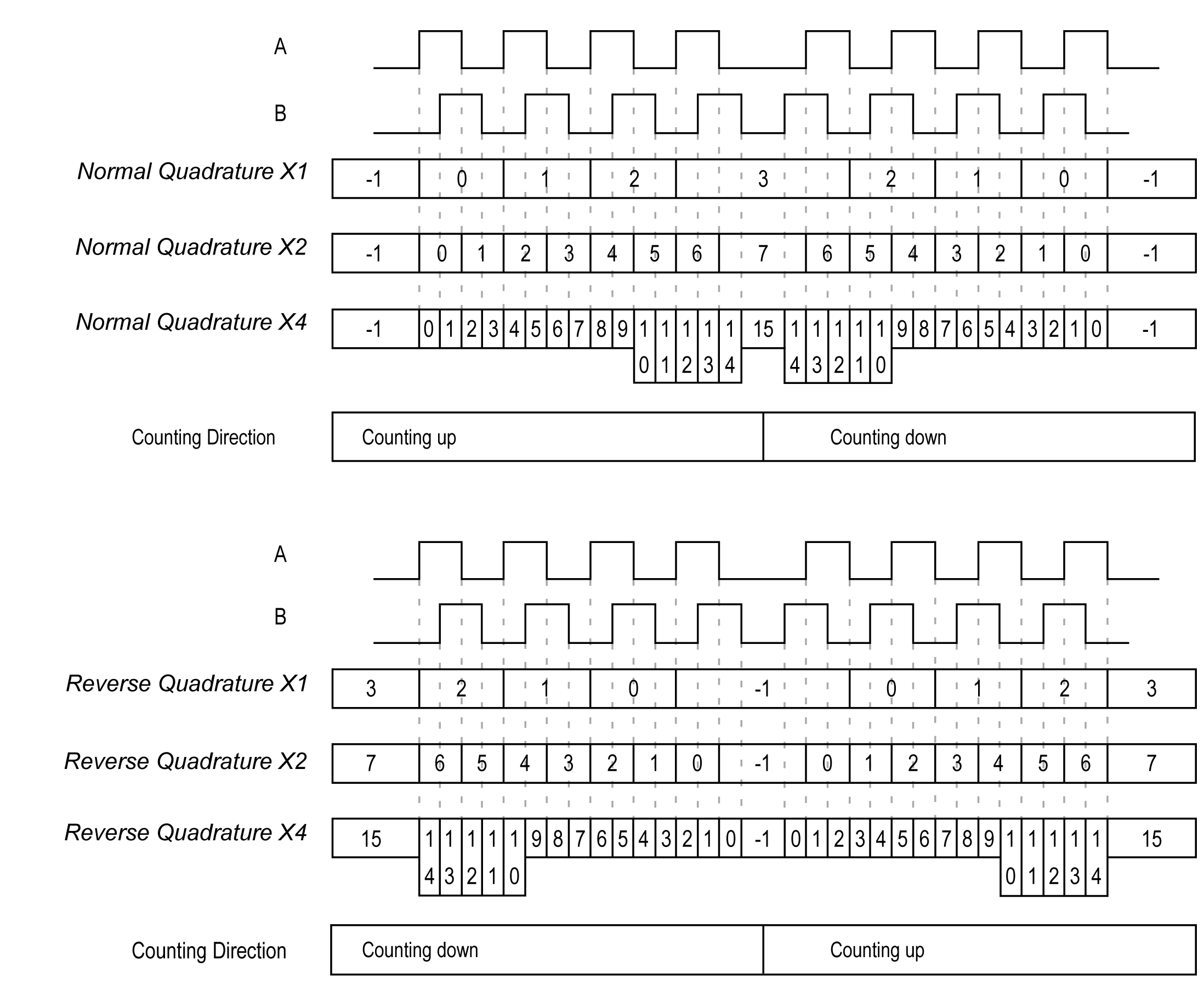Free-large Mode Principle Description
The Free-large mode can be used for axis monitoring or labeling in cases where the incoming position of each part has to be known.
In the Free-large mode, the module behaves like a standard up and down counter.
When counting is enabled, the counter counts as follows in:
Incrementing direction: the counter increments.
Decrementing direction: the counter decrements.
With a Specialized type, on the rising edge of the preset condition, the counter is activated and the current value is set to the preset value.
With a Main type, on the rising edge of the Sync condition, the counter is activated and the current value is set to the preset value.
The current counter is stored in the capture register by using the Capture function.
If the counter reaches the counting limits, the counter will react according to the Limits Management configuration.
This table shows the 8 types of input modes available:
|
Input Mode |
Comment |
|---|---|
|
A = Up, B = Down |
default mode The counter increments on A and decrements on B. |
|
A = Pulse, B = Direction |
If there is a rising edge on A and B is true, then the counter decrements. If there is a rising edge on A and B is false, then the counter increments. |
|
Normal Quadrature X1 |
A physical encoder always provides 2 signals 90° shift that first allows the counter to count pulses and detect direction: oX1: 1 count for each Encoder cycle oX2: 2 counts for each Encoder cycle oX4: 4 counts for each Encoder cycle |
|
Normal Quadrature X2 |
|
|
Normal Quadrature X4 |
|
|
Reverse Quadrature X1 |
|
|
Reverse Quadrature X2 |
|
|
Reverse Quadrature X4 |
The figures shows the A = Up, B = Down mode:

|
Stage |
Action |
|---|---|
|
1 |
On the rising edge of Preset condition, the current value is set to the preset value and the counter is activated. |
|
2 |
When Enable condition = 1, each pulse on A increment the counter value. |
|
3 |
On the rising edge of Preset condition, the current value is set to the preset value. |
|
4 |
When Enable condition = 1, each pulse on B decrements the counter value. |
|
5 |
When Enable condition = 0, the pulses on A or B are ignored. |
|
6 |
On the rising edge of Preset condition, the current value is set to the preset value. |
|
7 |
When Enable condition = 1, the pulses on B decrements the counter value. |
The encoder signal is counted according to the input mode selected, as shown below:

The counter applies an hysteresis correction value if the rotation is inverted. The value of slack defines the number of points that are not acknowledged by the counter during the rotation inversion.
This takes into account the slack between the encoder/motor axis and the mechanical axis, an encoder measuring the position of a mat for example.
This behavior is illustrated in the following figure:

NOTE: Slack is only used in quadrature modes with Specialized type.